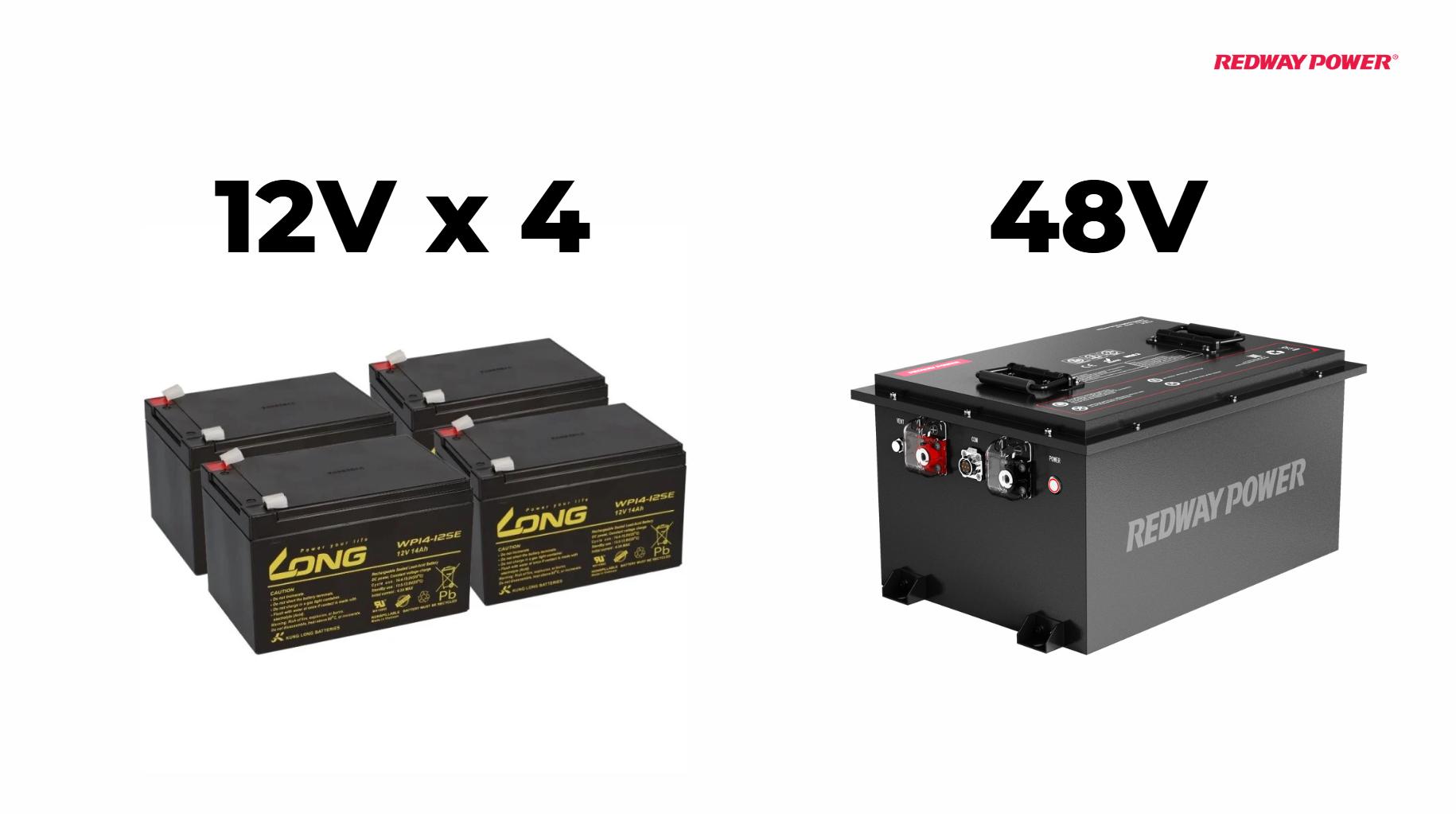Choosing between high voltage (HV) and low voltage (LV) batteries requires an understanding of their fundamental differences, including voltage ratings, efficiency, applications, costs, safety considerations, environmental impacts, lifespan, cycle life, and emerging technologies. This comprehensive guide will help you make an informed decision tailored to your energy storage needs.
Why Is Understanding Voltage and Power Important When Choosing Between HV and LV Batteries?
The distinction between high voltage and low voltage batteries primarily revolves around their voltage ratings, which significantly affect their power output capabilities. HV batteries typically operate at voltages ranging from 200V to 800V, making them suitable for applications requiring substantial power, such as industrial machinery or electric vehicles. In contrast, LV batteries usually operate below 48V, ideal for smaller devices like residential solar systems.
Chart Title: Comparison of Battery Voltages
| Battery Type | Typical Voltage Range | Suitable Applications |
|---|---|---|
| High Voltage | 200V – 800V | Industrial, commercial, EVs |
| Low Voltage | 12V – 48V | Residential solar systems, small devices |
How Does Efficiency Differ Between High Voltage and Low Voltage Batteries?
High voltage batteries generally exhibit higher efficiency levels compared to their low voltage counterparts due to reduced resistive losses during energy transfer. For instance, while low-voltage systems may operate at around 60% efficiency, high-voltage systems can achieve efficiencies upwards of 97%. This means that high-voltage systems are more effective at converting stored energy into usable power.
Wholesale lithium golf cart batteries with 10-year life? Check here.
Chart Title: Efficiency Comparison Between HV and LV Batteries
| Battery Type | Efficiency Rate | Energy Losses |
|---|---|---|
| High Voltage | Up to 97% | Minimal losses |
| Low Voltage | Approximately 60% | Significant energy losses |
What Applications Are Best Suited for High Voltage vs. Low Voltage Batteries?
High voltage batteries are particularly advantageous for large-scale applications that demand rapid charging and discharging capabilities, such as commercial energy storage systems or electric vehicles where performance is critical. Conversely, low voltage batteries are well-suited for residential applications where energy needs are less demanding.
How Do Cost Considerations Influence Your Choice Between HV and LV Batteries?
While high voltage battery systems often come with higher upfront costs due to advanced technology requirements, they can prove more economical over time due to lower operational costs associated with higher efficiency levels. In contrast, low voltage systems generally have lower initial costs but may incur higher expenses over their lifespan due to inefficiencies.
Want OEM lithium forklift batteries at wholesale prices? Check here.
Chart Title: Cost Analysis Over Time
| Cost Factor | High Voltage Battery | Low Voltage Battery |
|---|---|---|
| Initial Cost | Higher | Lower |
| Operational Costs | Lower | Higher |
| Total Cost Over Time | More cost-effective | Less cost-effective |
What Safety Measures Should Be Taken When Using High Voltage vs. Low Voltage Batteries?
Safety considerations are paramount when dealing with high voltage battery systems due to the increased risk of electric shock or equipment damage. These systems require advanced safety features such as proper insulation, grounding techniques, and protective devices to mitigate risks. In contrast, low voltage systems pose fewer hazards but still necessitate basic safety precautions.
What Are the Environmental Impacts of Using HV vs. LV Batteries?
The environmental implications associated with both battery types vary significantly based on their applications and lifecycle impacts. Generally speaking, high voltage batteries may contribute to greater resource consumption during manufacturing but offer enhanced efficiency that can reduce overall emissions during operation.
How Do Battery Lifespan and Cycle Life Compare Between HV and LV Batteries?
Battery lifespan refers to how long a battery can effectively hold a charge before its capacity diminishes significantly. Cycle life indicates how many complete charge-discharge cycles a battery can undergo before failing to meet performance standards. Typically, high voltage batteries tend to have longer lifespans and cycle lives compared to low voltage batteries due to superior materials used in their construction.
What Innovations Are Emerging in HV and LV Battery Technologies?
Recent advancements in battery technologies are focusing on improving energy density, reducing costs, enhancing safety features, and increasing the sustainability of both high voltage and low voltage systems through better recycling processes.
Expert Views
“Selecting the appropriate battery type hinges on understanding your specific energy needs,” states an industry expert. “While high voltage solutions offer remarkable efficiency for larger applications, low voltage options provide simplicity for residential users.”
What is high voltage battery?
FAQ Section
- What is the main advantage of high voltage batteries?
High voltage batteries provide higher efficiency rates with reduced energy losses during operation. - Are low voltage batteries safer than high voltage ones?
Yes, low voltage batteries tend to have lower risks associated with electric shock compared to high voltage systems. - How do I determine which battery type is right for my application?
Consider your power requirements, budget constraints, safety concerns, and whether your application is residential or commercial when choosing between high voltage or low voltage batteries.






